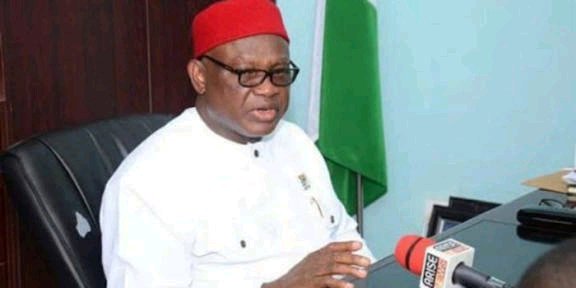Chief Chekwas Okorie, veteran politician and founder of the All Progressives Grand Alliance (APGA), has highlighted the vast demographic and political strength of the Igbo people, calling for their voting power to be recognized and respected in Nigeria’s political landscape.
According to a video post shared on Signature TV, Okorie stressed that the Igbo are not just concentrated in their ancestral homeland in the South-East but are spread across virtually every state in the federation. According to him, this unique distribution gives the ethnic group a critical role in shaping Nigeria’s electoral outcomes.
“Igbo people are the second largest ethnic group in any state of Nigeria after the indigenous population,” Okorie stated. “Again, studies have proved that Igbo people have a minimum of 25% of the voting population of any state in Nigeria.”
This assertion, Okorie argued, should guide political parties and leaders in their approach to governance, campaigns, and appointments.
He said the Igbo presence across the country is a result of decades of migration, trade, and entrepreneurship, which have seen them become a permanent part of the social and economic fabric of numerous states.
Okorie explained that the Igbo dispersal is not a recent phenomenon but one rooted in history, driven by the community’s entrepreneurial spirit and quest for opportunities.
“From the smallest towns to major cities, you will find Igbo businesses thriving, children going to school, and entire families contributing to local economies,” he said.
Political analysts agree that the Igbo are one of the most mobile and widely distributed ethnic groups in Nigeria. Their significant population outside the South-East has often been described as an untapped political force that could determine electoral outcomes if mobilized effectively.
According to Okorie, this demographic advantage carries major implications for policy-making and power-sharing.
He lamented that despite their numbers, the Igbo have sometimes been marginalized in the political equation at the federal level, particularly when it comes to key appointments and national decision-making processes.
“This is why the Igbo must recognize their strength, come together politically, and insist on being given their rightful place in the affairs of this country,” he said.
He further called on Nigerian political parties to take the Igbo voting bloc seriously, warning that ignoring them could cost any party victory in closely contested elections.
Okorie argued that campaigns and policies that deliberately alienate the Igbo are not only unjust but also politically unwise given their voting strength.
Observers note that Okorie’s comments come at a time when debates about national inclusion, restructuring, and power rotation are intensifying ahead of the 2027 general elections.
Many political commentators believe that the Igbo vote will play a critical role in deciding the outcome of the next presidential election, especially if the ethnic group can unite behind a common political agenda.
Okorie concluded his remarks by encouraging the Igbo to participate actively in politics, register to vote, and use their numerical strength to influence governance. “Our presence is felt everywhere. See, More, Here>>>>
We must make sure our voice is heard everywhere too,” he said.

